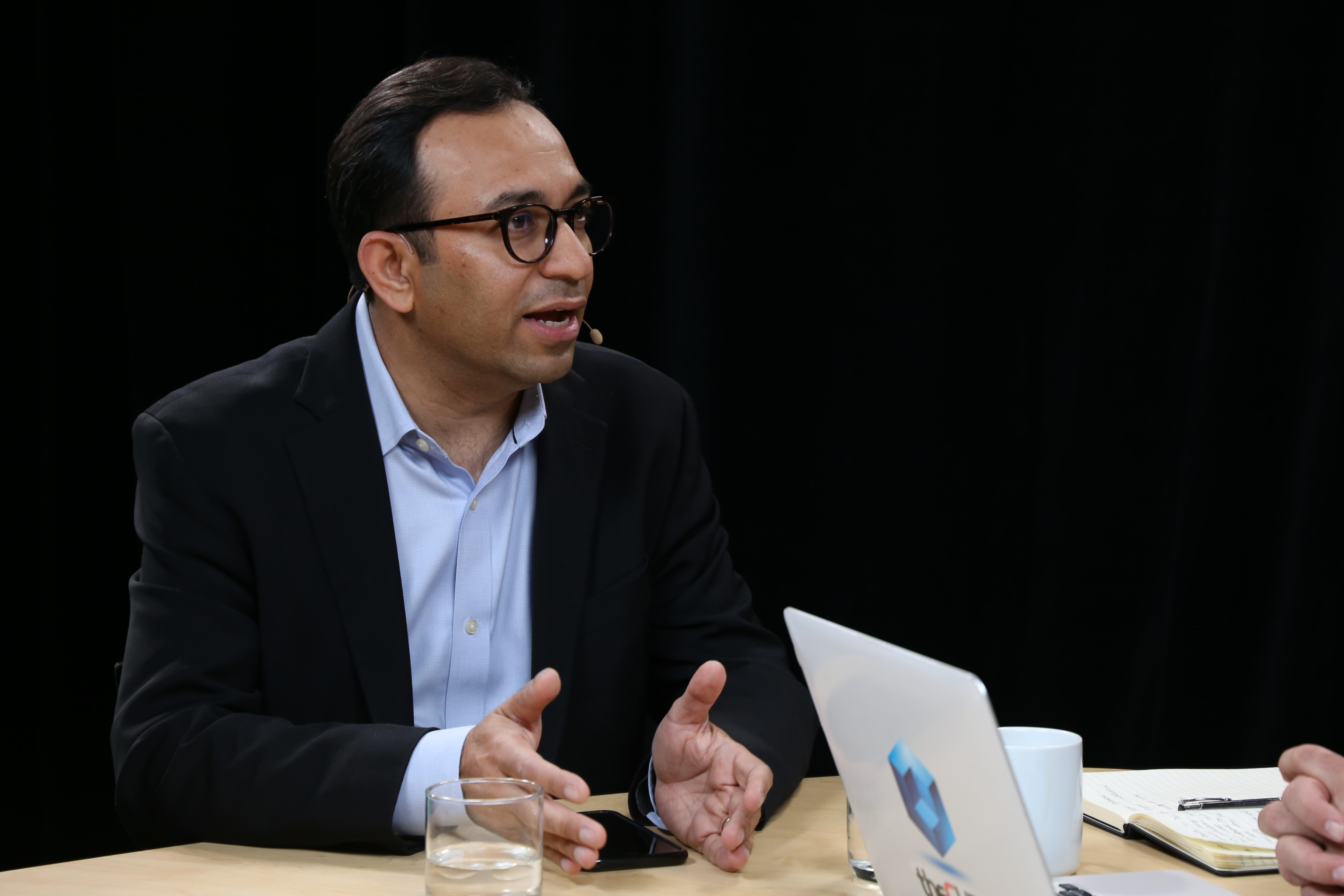 NEWS
NEWS
 NEWS
NEWS
 NEWS
NEWS
Each year, enterprises find new aspects of the Big Data transformation to which they must adapt, and keeping up with awareness of these various changes is only one part of bringing those developments into practice for competition and efficiency benefits.
This topic is a focal point at BigDataSV 2016, where theCUBE is celebrating #BigDataWeek, including news and events from the #StrataHadoop conference. At the San Jose-hosted event, Amit Walia, EVP and chief product officer at Informatica Corp., joined John Furrier (@furrier) and Peter Burris (@plburris), cohosts of theCUBE, from the SiliconANGLE Media team, to talk about the latest evolutions in the tech business landscape.
From Walia’s perspective, things are becoming more complicated in handling data, but at the same time, more and more options of how to manage handling the data are becoming available. Pointing to the massive increase in social media data from avenues such as Facebook, Twitter and others, Walia briefly discussed the distribution of this data and comparable actions in other realms of data-generation, and he noted, “Underlying all of these types of data … applications are getting massively fragmented.”
What needs to be kept in mind for the enterprises generating and managing these data streams, Walia said, “Having a data layer and having the intelligence there is going to be the key.” He also noted, “Nothing happens in isolation,” and “No new technology completely subsumes the old,” so finding ways of bringing together new data-management options with the old will be a major point of innovation in the years to come.
Connecting data lakes is “not a trivial job,” as Walia pointed out, and while it may be a relatively trivial thing to fund for established companies, it forms a major barrier to market entry for those that are seeking to get their hold in the market. Securing and governing the imported data is another big task for these companies and part of the four major points of modern data-handling, which Walia identified as “integration, governance, security and mastery.”
“We cannot let technology get in the way of creating value from Big Data,” Walia emphasized, something he feels is obvious to contemporary customers. “Customers can’t rely on one app today … [they] want the ability to pick and choose apps … but carry [their] data wherever [they] go.” With so many alternatives available to these customers, creating disruptive selling points is a virtual must.
Touching on exploration of the difficulties with scaling for app testing, something that can be addressed through partnering of companies with complementary specializations, the conversation soon moved on to exploring how the control layer is being abstracted away from the data layer in new apps and frameworks.
“I think the opportunity for developers is, once the layers get decoupled, that’s democratization of data,” Walia said, but moved on to address the ways in which “data completeness” has different meanings for customers, developers and enterprises, but all expect to be able to utilize it for whatever they want.
Among the other topics of conversation, Walia gave some touchstone summations of the current state of things, including, “The hybrid world is here, we live in it, and I think anyone who doesn’t realize that is basically passé.” He added, “I think things have changed, but number one is still: Build the best product.”
Watch the full interview below, and be sure to check out more of SiliconANGLE and theCUBE’s coverage of BigDataSV 2016. And make sure to weigh in during theCUBE’s live coverage at the event by joining in on CrowdChat.
THANK YOU